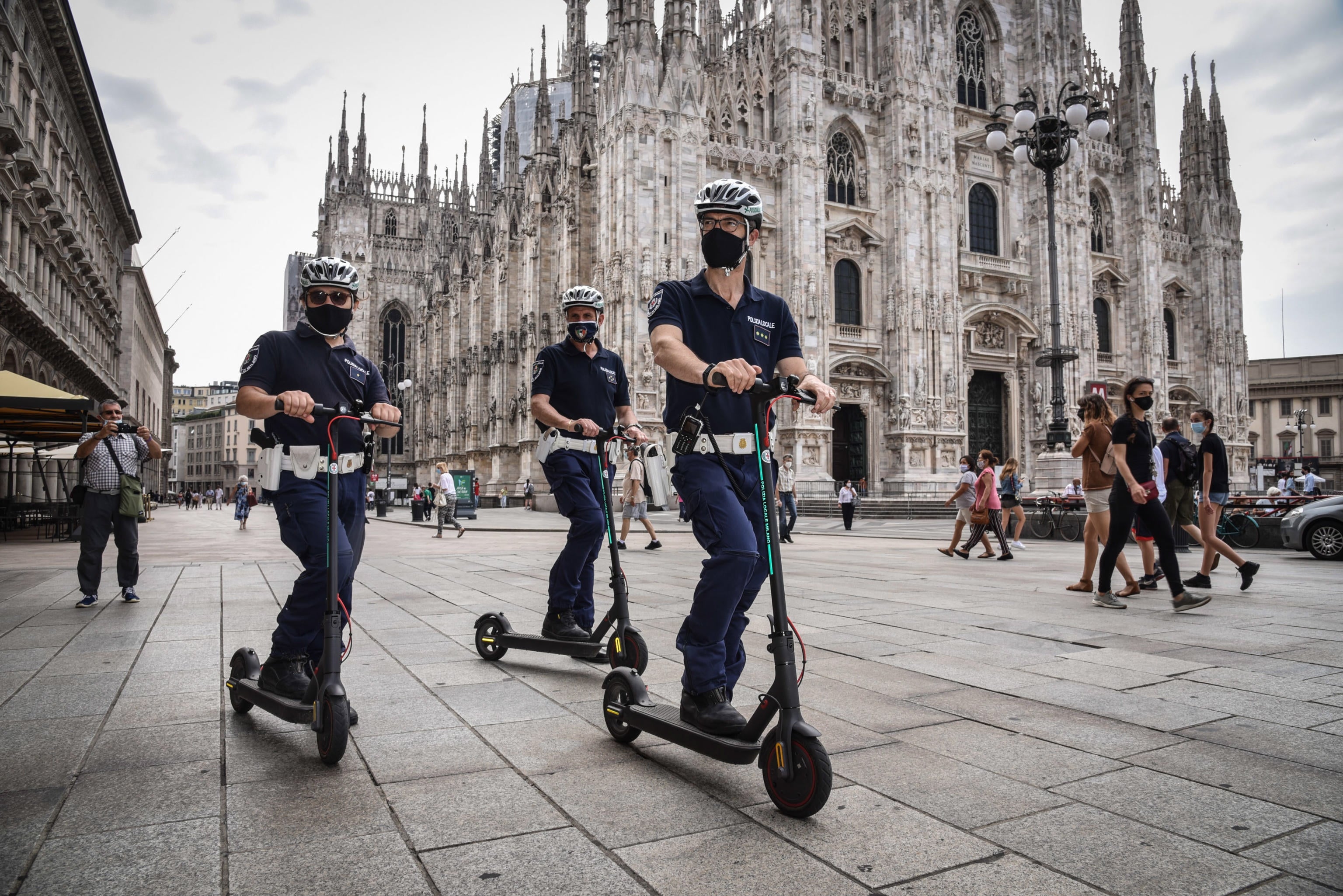'Everyone is looking to us': How coronavirus transformed Milan
'Citizens are reacting in a very positive way because they are rediscovering the city in a way they probably had never thought about before,' city councillor tells Zoe Tidman


As Milan emerged from its darkest days of coronavirus and one of Europe’s strictest lockdowns, the city has seen transformations with both public health and sustainability at their core.
Italy was the first country in Europe to confirm a case of Covid-19, and the first to bear the brunt of the pandemic as its northern regions saw an outbreak that pushed hospitals and funeral services to the limit, shuttering thousands of businesses in the process.
The city of Milan stood at the heart of this crisis, with its province confirming more than 26,000 cases - to date, the worst tally of any district in the country.
“We had a big duty and a big responsibility, because every other city was looking at us and what we were doing,” Roberta Cocco, a city councillor, says in an interview with The Independent.
From cycle lanes to encouraging taxi shares, she says authorities are now transforming the city in a way that is also “connected” to environmental concerns.
In April, the city vowed to build 35km of cycle lanes to encourage people to travel around on bikes, in a bid to avoid crowded public transport and residents turning to driving with the eventual reopening of offices and schools.
“During the beginning of the lockdown period, many, many big roads were completely transformed,” says Ms Cocco. “We created many bicycle lanes in every single area where possible.”
At the end of August, the city council said around 21km of the new cycle lanes were in action, and the rest should be finished shortly, including one along Viale Monza, a long road heading out of the city centre, and another along one of the city's canals.
"Citizens are reacting in a very positive way because they are rediscovering the city in a way they probably had never thought about before," Ms Cocco says.
Not everyone is happy with the cycle lanes, however. One group, which represents consumers, has complained that the one running down Corso Buenos Aires is unsafe, claiming the cars drive too close to the bikes, according to Italian media.
Marco Donzelli, the president of Codacons, told La Repubblica: “It isn’t enough to decide you want to create a cycle lane and draw a line on the tarmac.”
As well as boosting cycling, the city has tried to prevent overcrowding on public transport by handing out vouchers for certain groups of people for free shared taxi rides, including elderly people, disabled people, those going to the hospital for treatment and women travelling alone late at night for work.
The initiative is also aimed at helping taxi drivers weather the economic shock of coronavirus, which has kept many residents and tourists at home for months.
“Taxi drivers were asking for support,” Ms Cocco says, adding you could spot “hundreds” of taxis just waiting on the roadside during the pandemic, unable to get any customers.
Italians were told not to leave the house unless it was essential at the height of their coronavirus lockdown, in a bid to contain the outbreak - which hit Lombardy, Milan’s region, the worst.
During the pandemic, the council also used technology to help people stay at home as much as possible.
They set up an app where residents can do all their administrative tasks related to the council - such as enrolling children into school and making payments - to avoid them having to go to a crowded office and mix with people during the pandemic.
This was as people were more likely to have a mobile phone than a computer or tablet, Ms Cocco explained, so the council had to adapt to stay connected to residents.
Now, as people can go back to restaurants, shops and bars, certain measures are also aimed at helping businesses restart in a safe way.
Those that can are being encouraged to make use out of public spaces outside, and can now apply for this online to make it an easier process. By expanding outside, they can serve more customers even as coronavirus restrictions continue to limit the number of people they can take inside.
"This is something that we are pushing," Ms Cocco says. "Trying on one side to support the small businesses on the other side to consider citizens' health as a key priority."




Join our commenting forum
Join thought-provoking conversations, follow other Independent readers and see their replies
Comments